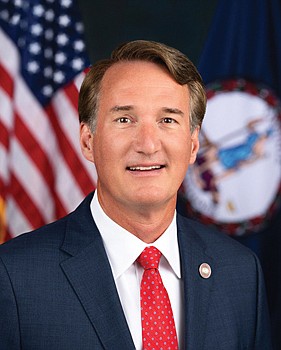New laws on marijuana, police and education start July 1
George Copeland Jr. | 5/23/2024, 6 p.m.
Concerned about how cannabis use could affect your job?
Interested in more education opportunities for your children?
Hoping to save money on critical items during the annual sales tax holiday?
All these topics and others were the focus of bills passed by legislators and signed by Gov. Glenn A. Youngkin during the 2024 General Assembly session, and will become laws Monday, July 1.
Public sector workers who rely on medical cannabis oil won’t have to worry about losing their jobs, thanks to a Senate bill and House bill that expand protections for legal users. Introduced by state Sen. Stella Pekarsky and Delegate Dan Helmer, the bills amend and expand a provision in the state Constitution on employer discrimination against employees. The amendment specifies that employers can’t “discharge, discipline, or discriminate against an employee” for medical cannabis oil use and expands the provision to include state employees, other than law enforcement, alongside those protected.
For residents who face first-time charges for marijuana use, new options to avoid harsh punishments will be available following the passage of a bill from Del. Katrina Callsen, which expands the state’s first offender drug program to anyone convicted of misdemeanor offenses due to marijuana possession.
In terms of education, high schoolers and college students will see a number of new benefits. Bills sponsored by Sen. L. Louise Lucas and Delegate Carrie E. Coyner will create the College and Career Ready Virginia Fund, which aims to expand options for dual enrollment programs for high schoolers across the state. This will enable more students to take college-level courses while working towards a high school diploma.
For college students looking for work, but are hamstrung by withheld transcripts due to minor debts, a bill from Delegate Betsy Carr would remove this obstacle by requiring colleges and universities to release transcripts to students that owe less than $500, or $1,000 for Pell grants.
Two bills collectively known as Irvo’s Law will allow family members and guardians to support and make decisions for loved ones in mental health crises. Sen. Lamont Bagby and Delegate Rodney T. Willett sponsored these bills, inspired by the treatment of Irvo Otieno, who was killed in police custody during a mental health crisis last year. Delegate Willett and Sen. Bagby were also the sponsors of bills that require training standards for law enforcement for when communicating with people who have intellectual or developmental disabilities by the start of 2027.
In regards to police transparency, changes come courtesy of Delegate Sam Rasoul and co-patron Delegate Cliff Hayes in the form of HB 1496, which requires all state and local law enforcement agencies and sheriff’s departments to provide a list of surveillance technologies used to the DCJS on an annual basis by Nov. 1 of each year.
The bill also requires the DCJS to provide that information to the Virginia State Crime Commission and the Joint Commission on Technology and Science.
Finally, following a delayed sales tax holiday last October, Virginians will be able to purchase clothes, footwear, and school and emergency supplies tax free next summer. Bills from Sen. Lucas and Delegate David Reid established the first full weekend in August as the sales tax holiday, starting in 2025 through July 1 in 2030.






